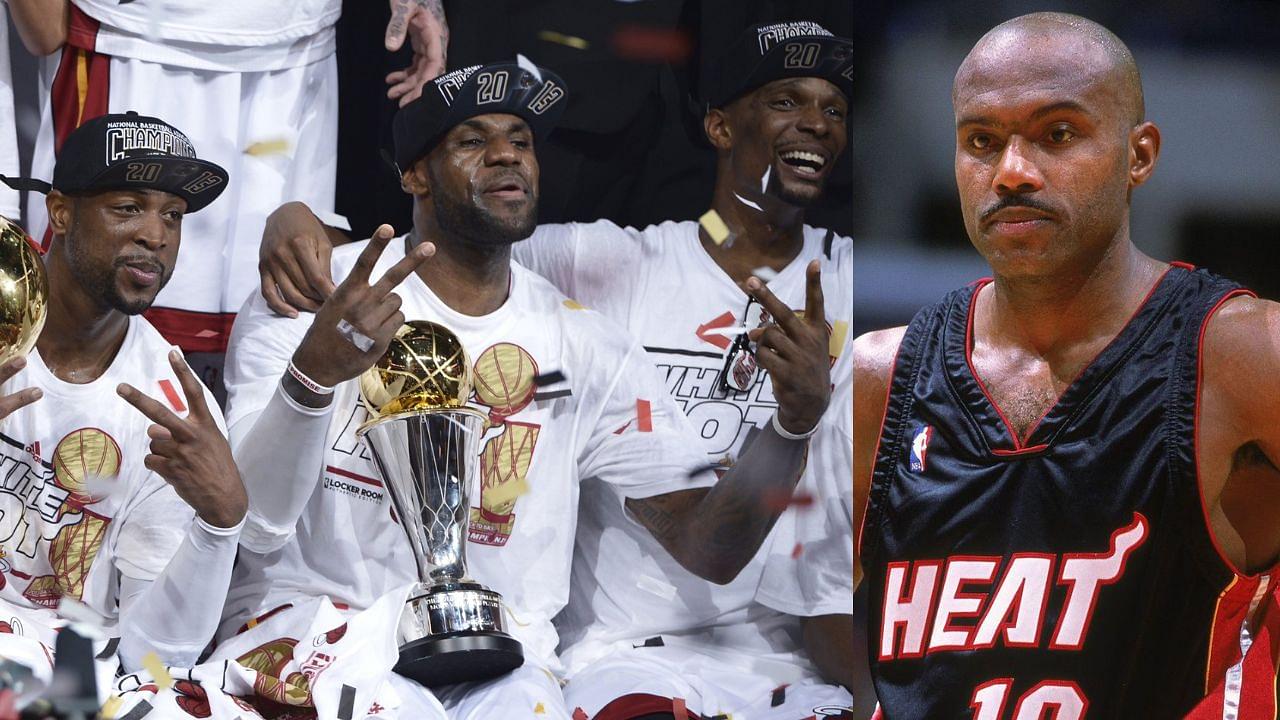When LeBron James and Chris Bosh joined the Heat in 2010 to team with their fellow draftee Dwyane Wade, plenty of things changed in the NBA, including the past, present, and future of the Miami Heat. However, that trio has nothing to do with the famous “Heat Culture” as per Tim Hardaway.
Advertisement
A lot of casual basketball fans became a part of Heat Nation as soon as The King decided to come to South Beach and before that, several did the same after Wade had won a chip with Shaquille O’Neal in 2006.
They might be responsible for the misconception that the Heat culture started developing around either of those two timelines, but one of their legendary guards is here to set the record straight.
Tim Hardaway said Heat Culture started way before the Big Three of Dwyane Wade, LeBron James, and Chris Bosh
In an interview with the South Florida Sun Sentinel last year, Tim Hardaway Sr. talked about how social media has led this generation to believe that the Heat culture in Miami started during/after the Big-3 era.
“They forget about what really happened. They just look at now, with the Big Three and those guys. I laugh; I just let it go,” Hardaway said. “I really think Heat culture started in ’96-97… All these social media, they forget about what really, really happened in ’96-97, ’98-99.”
The Crossover King then pointed out how he, Alonzo Mourning, and Pat Riley were actually the ones who were responsible for starting it all.
“I knew I could still play at a high level [after leaving Warriors] and back to where I needed to get to at an All-Star level,” Hardaway said. “It’s kind of like we both needed each other. Pat needed me; I needed Pat. And Zo needed both of us to get to the next level. That’s how it [the culture] came around and evolved.”
They could have won a championship or two in the late 90s.
There won’t be a championship in 2006 without the Heat culture
If it weren’t for the already developed Heat culture, that was the best place for a rookie to land in, Dwyane Wade and Shaquille O’Beal-led Miami team wouldn’t have brought the franchise’s first championship in 2006.
Pat Riley was the Head Coach of the team, and Zo led the team (especially on defense), although he wasn’t contributing as much offensively as he used to a couple of years back. Those two were the backbone of the team which defeated the Dirk Nowitzki-led Mavericks after going down 0-2 in the Finals.






